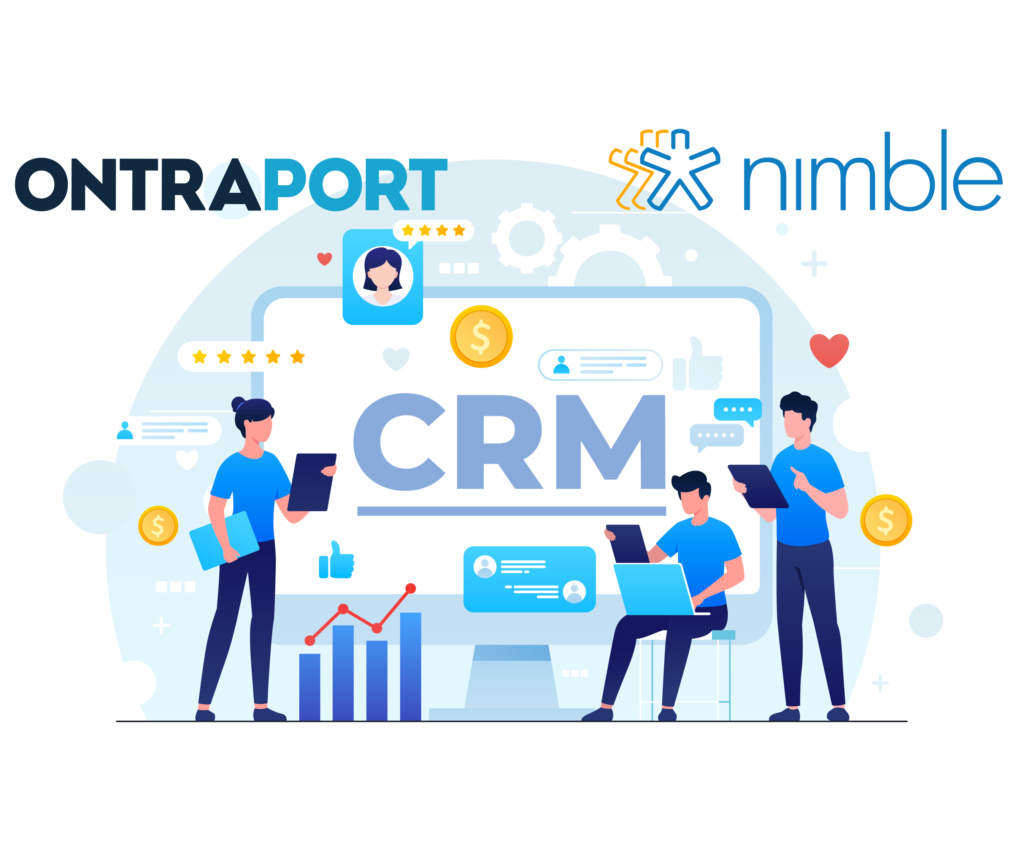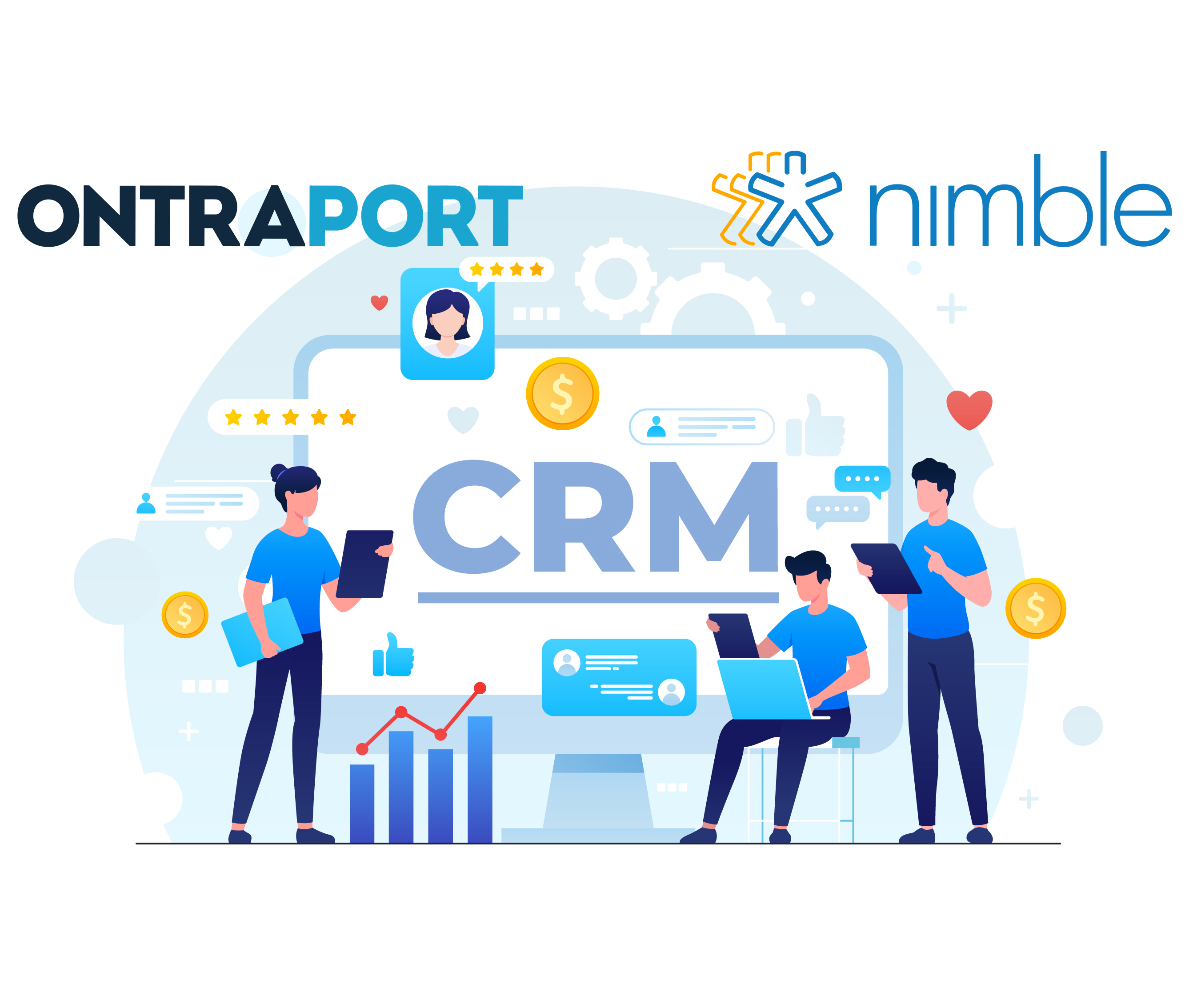Ontraport vs Nimble: Which CRM is Right for Your Business?
When it comes to choosing the right customer relationship management (CRM) software for your business, there are many factors to consider. Two popular options are Ontraport and Nimble. In this article, we’ll compare the two platforms to help you decide which one is right for your business.

Overview of Ontraport and Nimble
Ontraport is a CRM and marketing automation software that helps businesses manage their customer interactions, automate their marketing campaigns, and track their sales. The platform offers a wide range of features, including email marketing, lead generation, sales pipeline management, and more.
Nimble, on the other hand, is a social CRM software that helps businesses manage their contacts, social media interactions, and sales pipeline. The platform offers a range of features, including contact management, social media integration, sales pipeline management, and more.
Now, let’s compare the two platforms based on their features, pricing, and customer support.
Features
Ontraport and Nimble both offer a range of features to help businesses manage their customer interactions and sales pipeline. However, there are some key differences between the two platforms.
Ontraport Features:
CRM and marketing automation software
Email marketing
Landing pages
Lead generation
Sales pipeline management
Reporting and analytics
E-commerce integration
Nimble Features:
Social CRM software
Contact management
Social media integration
Sales pipeline management
Reporting and analytics
Pricing
Ontraport and Nimble have different pricing models. Ontraport offers three pricing plans: Basic, Plus, and Pro. The Basic plan starts at $79 per month, and the Pro plan is $497 per month. Each plan offers different features and limitations.
Nimble, on the other hand, offers a single pricing plan that costs $25 per user per month. The platform also offers a 14-day free trial.
Customer Support
Both Ontraport and Nimble offer customer support through email, phone, and live chat. However, Ontraport also offers a knowledge base, video tutorials, and a community forum to help users troubleshoot issues and learn more about the platform.
Which CRM is Right for Your Business?
So, which CRM is right for your business? Here are some factors to consider:
Budget: If you’re on a tight budget, Nimble may be the better option, as it offers a lower-priced plan and a free trial.
Features: If you’re looking for a CRM and marketing automation software with advanced features like e-commerce integration, Ontraport may be the better option.
Social Media: If social media management is a key part of your customer interactions, Nimble’s social CRM features may be a better fit.
Customer Support: If you value a strong support community and access to tutorials, Ontraport may be the better option.
In conclusion, both Ontraport and Nimble are powerful CRM software platforms that can help businesses manage their customer interactions and sales pipeline. The right platform for your business will depend on your budget, feature requirements, and support needs. Consider these factors when making your decision and test out the platforms through their free trials to see which one works best for you.
here are some pros and cons of Ontraport and Nimble to consider:
Ontraport Pros:
Advanced marketing automation features
E-commerce integration
Robust reporting and analytics
Strong customer support community
Landing pages for lead generation
Ontraport Cons:
Higher price point compared to Nimble
Steeper learning curve for some advanced features
Limited social media management capabilities
Nimble Pros:
Lower price point compared to Ontraport
User-friendly interface
Strong social media management capabilities
Contact management features
Easy integration with third-party apps
Nimble Cons:
Limited marketing automation capabilities
Limited e-commerce integration
Limited reporting and analytics capabilities
Limited customization options
Ultimately, the pros and cons of each platform will depend on the specific needs of your business. Consider which features are most important to you and your team, and choose a platform that aligns with those needs.
Other Factors to Consider
In addition to pricing, features, and customer support, there are a few other factors to consider when choosing between Ontraport and Nimble.
Scalability: If you’re planning to grow your business in the future, it’s important to consider how scalable your CRM platform is. Both Ontraport and Nimble are designed to grow with your business, but Ontraport may be better suited for larger enterprises with more complex needs.
Integrations: Another important factor to consider is how well the CRM platform integrates with other software and tools you’re already using. Both Ontraport and Nimble offer integrations with a range of third-party apps, but it’s important to check if they integrate with the specific tools you need to use.
Customization: Depending on the size and needs of your business, customization options may be important. Ontraport offers more advanced customization options, such as custom objects and fields, but may require more technical expertise to set up. Nimble, on the other hand, has more limited customization options but is easier to use out of the box.
Conclusion
When it comes to choosing between Ontraport and Nimble, there’s no one-size-fits-all answer. The best CRM platform for your business will depend on your specific needs, budget, and growth plans. Consider the pros and cons of each platform, as well as factors like scalability, integrations, and customization, when making your decision.
Ultimately, the key to success with any CRM platform is to choose one that aligns with your business goals and helps you streamline your customer interactions and sales processes. With the right CRM software, you can manage your customer relationships more effectively, improve your marketing efforts, and grow your business over time.
Other Alternative
Simply CRM is a cloud-based customer relationship management (CRM) software that is designed to help businesses manage their customer relationships and sales processes. It offers a range of features and tools that can help businesses streamline their sales processes, track customer interactions, and improve customer engagement.
One of the key features of Simply CRM is its contact management tools. The software allows businesses to store all of their customer information in one central location, making it easy to access and update customer records as needed. Businesses can also segment their customer database based on various criteria, such as demographics, purchase history, and engagement level, allowing them to target specific groups with personalized marketing campaigns.
Simply CRM also offers sales pipeline management tools that allow businesses to track their sales processes from start to finish. The software provides a visual pipeline view of all open deals, allowing businesses to see where each deal is in the sales process and identify potential bottlenecks. This can help businesses prioritize their sales activities and focus on deals that are most likely to close.
In addition to its sales pipeline management tools, Simply CRM also offers marketing automation tools that can help businesses streamline their marketing processes. The software allows businesses to create and send email campaigns, track website visitors, and monitor social media engagement, all from within the platform. This can help businesses improve their customer engagement and drive more leads and sales.
Simply CRM also offers a range of other features, including task management tools, team collaboration tools, and reporting and analytics tools. The software is designed to be easy to use, with a simple and intuitive user interface that requires no technical expertise. It also offers a range of integrations with other popular business tools, such as Zapier, Mailchimp, and QuickBooks.
Overall, Simply CRM is a powerful and versatile CRM software that can help businesses of all sizes manage their customer relationships and sales processes more effectively. Its range of features and intuitive user interface make it a popular choice for businesses looking to improve their customer engagement and drive more sales.




